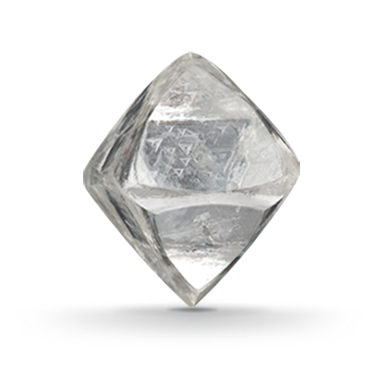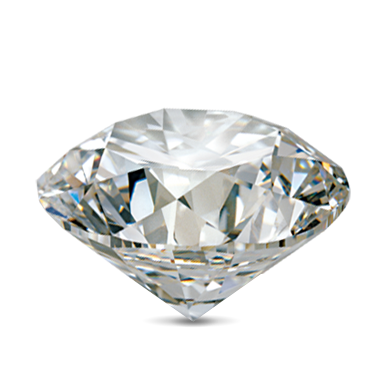5 Reasons to Choose Lab-Grown Diamonds Over Natural Diamonds (Or Maybe Not)
Whenever I visit a jewelry show, there is a big fat chance that I stumble upon arguments between people about diamonds. With the arrival of lab-grown diamonds in the jewelry arena, things changed. This blog discusses the pros and cons, what I would choose and what you need to know.
Discussion in the jewelry industry
A few years ago, I climbed onto the stage to join a group of experts in an amicable but heated discussion during VicenzaOro. The room was filled, indicating the notorious popularity of the subject.
As easy to predict, we all are moved by our interests and agenda. Mine certainly wasn't on the part of the diamond industry nor the lab-grown diamond industry, but the final consumer. We need to inform them openly, transparently, and honestly with their interest and wishes in our minds and our values in our hearts.
Also read: The future of diamonds
Accepting the fact that a lab-grown diamond is here to stay.
As an industry, we must consider that lab-grown diamonds are here to stay.
They are formed in a laboratory and, therefore, man-made. The end result has the same composition as naturally created diamonds. The ones that were developed by the cosmos, mother Earth, and tons of pressure and heat a very long time ago.
We recreate this in a laboratory, and that is, of course, a fantastic thing. But not everyone is as enthusiastic. Obviously.
Also read: how to smuggle a thousand diamonds...in your shoes!
The two stones may have a similar composition, but their story and how they were born, retrieved, and handled are certainly not.
One of the critical things we need to understand is that there is a significant price difference between a natural and a lab-grown diamond. Lab-grown diamonds are much cheaper than their natural counterparts.
Fraud
The problem arises when the communication with clients in the B2B and B2C areas is altered. To put it bluntly: when people commit fraud by selling lab-grown as natural diamonds.
While visiting one manufacturer in Valenza, I got a first-hand glimpse of what that looks like. They had purchased a particular machine to check all incoming diamonds. They were filtering the lab-grown diamonds out of the incoming purchased batches.
The final consumer, the one I care deeply about and the one I want to defend on stage, needs the option to check our honesty. If a consumer wants to buy lab-grown diamonds and we, as an industry, have given an insight into what a lab-grown product entails, the choice is theirs. And vice versa: when the consumer chooses a natural diamond, we should answer all questions that may arise.
Greenwashing
The lab-grown industry has been accused of greenwashing its product, and so has the natural diamond industry. Blood diamonds, the exploitation of people and planets, and the history of natural diamond mining are not all glitter and glory. Today the natural diamond industry makes amends by pushing the interests of local people and the planet much higher on the agenda and by funding initiatives to help the natural world and local communities.
My choice between a lab-grown diamond and a natural one would be:
What would I choose personally? Haha, well, that question has been asked so many times! I live in Europe, and lab-grown diamonds have not taken over the scene. I wonder if this has to do with the engagement ring industry. In my country (the Netherlands), engagement rings are barely a ''thing''. But in the US, for example, they are a huge deal.
In some popular discussions online, industry insiders even argue about what it says about the LOVE someone feels for another when buying a lab-grown diamond. This is the most ridiculous thing! Never let anyone tell you the size or where your diamond comes from represent the amount or quality of your LOVE for someone.
Remind yourself constantly that we buy diamonds -when asking someone to marry- because of a very clever marketing trick. (The A Diamond is Forever campaign by De Beers) I love how they installed this idea so firmly into the world, but in the end, I am always on the consumer's side and their budget. (When marrying someone at a young age, you should always consider spending your money wisely. Never create debts for a piece of jewelry)
I haven't answered the question, have I? ;-) What would I choose? Ok, ok....bear in mind that my answer is formed by personal preference and a long experience of looking at jewelry! Why did I choose natural? No one, not me nor you, needs jewelry. It's not vital to survival; we can live happy and meaningful lives without it. It's a beautiful thing to observe, create, buy or possess jewelry. So when we buy it, we should, in my opinion, be very mindful. So, I would choose a traceable diamond when buying a specific size. I want to know its complete journey from mine to my finger. With smaller diamonds, this is still virtually impossible for manufacturers. But with a larger single diamond, I would go for a natural one.

But when people choose a lab-grown one, that is great too.
Here is why:
You may wonder whether to choose a lab-grown or natural diamond. Both types of diamonds have unique benefits, and it's crucial to weigh the pros and cons before deciding. Here are five reasons why you might choose lab-grown diamonds, as well as some points to consider that may raise doubts about these benefits:
- They are more environmentally friendly. Lab-grown diamonds are created in a laboratory using advanced technology, which means they do not require the mining and extraction processes that natural diamonds do. This makes them a more environmentally friendly choice. However, it's important to note that the energy required to create lab-grown diamonds may have a carbon footprint of its own. Additionally, lab-grown diamond production involves using hazardous chemicals that could have negative environmental impacts.
- They are more affordable. Lab-grown diamonds are typically much cheaper than natural diamonds of the same quality and size. This is because they have different costs associated with mining and extraction and can be produced on a larger scale.
- They are ethically responsible. Mining natural diamonds often occurs in countries with questionable labor practices and human rights records. On the other hand, lab-grown diamonds are created in a controlled environment, ensuring that ethical labor practices are followed. While this may be true, it's important to note that the production of lab-grown diamonds also requires labor, and it's vital to ensure that ethical labor practices are followed in the laboratory setting.
- They are chemically and physically identical to natural diamonds. Lab-grown diamonds are made of the same material as natural diamonds and have the same physical and chemical properties. This means they are just as hard and durable as natural diamonds and have the same sparkle and shine. However, some may argue that natural diamonds have a certain "aura" or "energy" that lab-grown diamonds do not possess.
- They offer greater customization. Because lab-grown diamonds can be created in a laboratory setting, it is possible to customize the diamond's size, shape, and color. This means you can get what you want without settling for a natural diamond that may not meet your specifications. However, it's important to note that it is possible to find a natural diamond that meets your specific criteria.
Ultimately, the decision to choose a lab-grown or natural diamond is a personal one, and it's essential to consider all of the factors involved. Lab-grown diamonds offer many benefits, including being more environmentally friendly, affordable, and ethically responsible. However, it's also essential to consider the potential drawbacks and carefully research the options available before making a decision.
The claim that such a diamond makes for a poor investment could be more relevant for the consumer who buys a ring because of the value of the diamond in it.
The jewelry industry must NEVER forget that what people see in a ring is not the precious value of a stone. They see a treasure with deep emotional value, love, and memories.
Comments (8)
Leave a comment
![]()
© 2013 - 2025 Bizzita. All Rights Reserved
Legal Information | Copyright & Privacy Policy | Term & Conditions

Alica Potter
Thank you for publishing this thought-provoking blog post. I appreciate the balanced perspective you presented. Your post was truly informative and insightful, and I enjoyed reading it. Great work!
reply
Jogia Jewellers
I just read your blog now.
Thank you for sharing information about natural diamonds, 5 wares to choose from, to choose from, and to look at grown over natural diamonds. Keep up such amazing information to readers like us.
reply
Tatyana Tiskina
Holding my breath, I read the article, trying to understand your choice. Fortunately, nature won! I’m glad that experienced specialists will guide the public to the right solution.
reply
Vivaan Fine Jewels
Thank you for showcasing such a beautiful collection on your blog! Every item is crafted with extraordinary skill and meticulous attention to detail. It was particularly enjoyable to read about the different types and how they pair with various ensembles for all kinds of events. It is always exciting to discover unique jewelry designs that convey just the right amount of sophistication. Keep up the great work! I look forward to more updates and tips on creative jewelry styling!
reply
Shop Vivaan
I absolutely love the gorgeous collection showcased on your blog! Each piece showcases remarkable craftsmanship and meticulous attention to detail. What I especially liked was learning about the different styles and how they can be matched with various outfits for any occasion. Unique jewelry designs that add the perfect touch of elegance are always so exciting to discover. Maintain the excellent work, and I eagerly await more updates and creative jewelry styling tips!
reply
Lab Grown DiamondS USA
Thank you for showcasing your beautiful collection on your webpage. Every item is crafted to perfection and features an incredible level of detail. It was fascinating to learn about the many varieties and how they complement different outfits in every situation. It is always fascinating to find distinctive jewelry designs that strike the perfect balance of elegance. I would like to see more updates and unique jewelry styling tips, so keep up the great work.
reply
consciouscarat -
This blog is amazing and I really enjoyed while reading this, also your writing style is so engaging.
Thankyou for sharing this to us.
reply
Samaya Jewelry
Thank you for sharing the beautiful collection on your blog! Beautiful craftsmanship and meticulous attention to detail are evident in every item. I was intrigued by reading about the numerous varieties and how they go well with different ensembles for different occasions. It's always so thrilling to discover original jewelry designs that offer just the right amount of sophistication. Keep up the fantastic work, and I eagerly await more updates and creative jewelry styling ideas!
reply